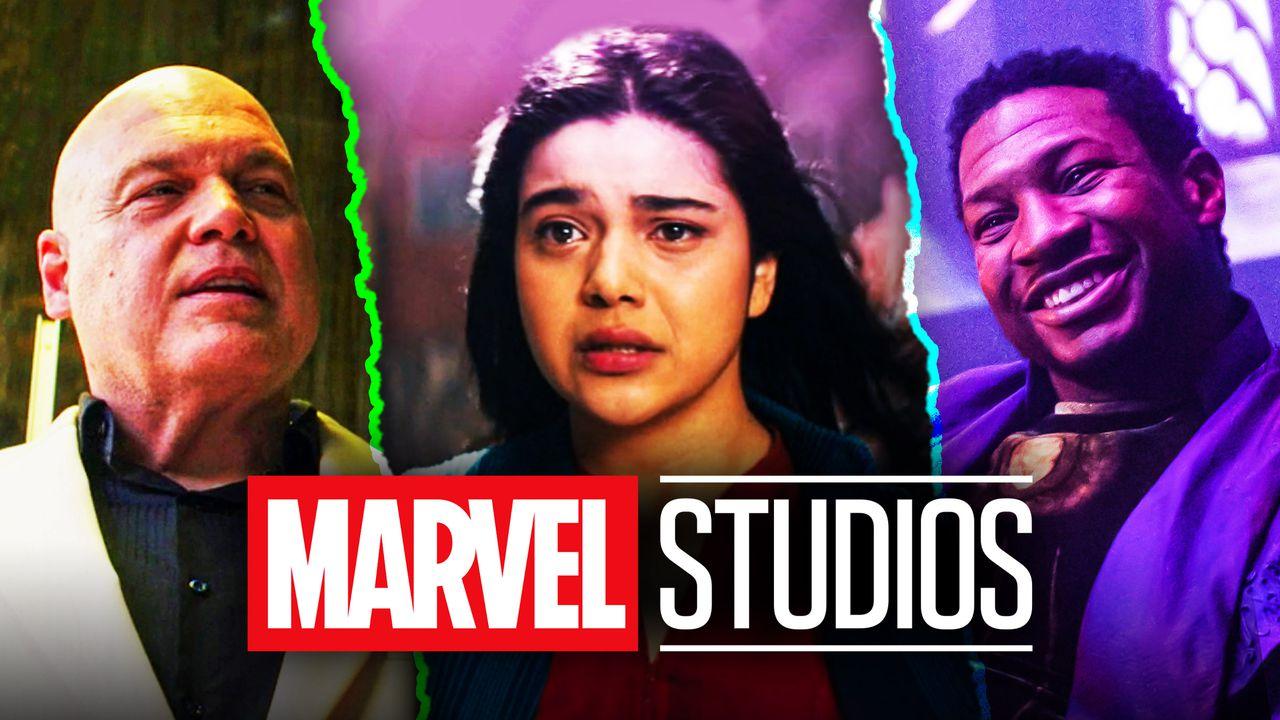
The Disney+ expansion has completely changed what’s possible in the Marvel Cinematic Universe. Not only are fans getting an enormous amount of content, far more than ever before, but stories are being told that would never have had the chance to make it to the screen otherwise—and the trend doesn't look like it's going to stop anytime soon.
As great as it is to have the opportunity for shows such as Loki or The Falcon and the Winter Soldier to exist, reception for them can vary greatly. By the time those stories end, the needle generally lands mixed reviews on either side of the positive or negative spectrum.
So what’s the cause of this reaction? Well, there are several reasons. However, the core one is simple, and it’s a trap that even Iman Vellani’s most recent Ms. Marvel has fallen into: the MCU’s Disney+ projects have a big villain problem.
Looking Back on MCU Disney+ Villains

Warning - The rest of this article contains spoilers for Episode 5 of Ms. Marvel.
For those who feel the ClanDestines in Ms. Marvel are a lackluster set of villains, that’s a perfectly understandable response to what the show has given viewers. It’s also yet another example of an uncooked threat and last-minute bad guy being thrown on the board.
Marvel’s Disney+ shows love to throw in villains at the last moment, often with no proper character work done prior. A big example of this was the return of Vincent D’Onofrio’s Kingpin in Hawkeye.
The crime boss is a massive character who had to shoulder the weight of the entire series’ conflict despite only appearing (and being mentioned) in the final episode. This led to many rushed and unearned moments and fans scratching their heads as to why he wasn’t on screen earlier.

WandaVision had Agatha, Loki had He Who Remains, What If…? brought in Infinity Ultron—these last-minute threats led to many of these final installments being far less satisfactory than they should have been.
It’s not always just a sudden entrance, either. The Falcon and the Winter Soldier had the Flag Smashers well-established from the start. The problem? They still didn’t receive the time and effort needed to make them intriguing and relatable.
One of the only Disney+ shows that didn’t suffer from an undercooked and rushed villain was Moon Knight, which had Ethan Hawke’s Author Harrow terrorize its main hero across all six episodes. However, Marvel still managed to check off its last-minute villain by bringing Ammit on the board for the finale.

The ClanDestine Problem in Ms. Marvel

When Ms. Marvel started, there didn’t seem to be much of an antagonist. Then audiences were introduced to the Department of Damage Control (DODC), followed by the ClanDestines.
The DODC, even up to this point, doesn’t seem like anything other than government goons. They're not the most interesting of foils for the MCU’s new hero.
As for the ClanDestines, they were just dispatched in this most recent episode and remain as confusing and underdeveloped as they were when they arrived on the scene in Episode 3. So who will end up being the big bad for Kamala’s final showdown?

On top of the obvious government confrontation that’ll happen, Kamran's role in the proceedings will likely fall into the classic Disney+ ‘last-minute bad guy’ trope, as pointed out by Reddit user u/steve32767.
He’s currently, much like the audience, confused by his mother’s actions and soon to be overwhelmed by how he now has green Noor powers. Add on to the fact that he’s a wanted man and was just almost blown up, he’s not going to be too happy.
It’ll certainly be quite a different Kamran than the one Kamala left before leaving the country.
How to Fix Kamala’s Villain Problem

So how could Ms. Marvel have gotten around the villain problem?
One step would have been to slowly introduce the ClanDestines in the first two episodes. They wouldn’t have necessarily needed to be a focus, but establishing them sooner would have done wonders.
Then the show should have allowed their desire to go home to simmer a little bit; maybe introduce the idea in one and wait at least an episode or two before they get to their breaking point; tacking on another reason or two as to why they snap would also help—maybe some sort of ticking timer.
After all, as it played out in the show, these beings that have waited decades to go home snapped at a high schooler because they couldn’t wait 24 more hours. It was rushed, plain and simple.
The group as a whole needed to be fleshed out more. Wanting to go home was simply not enough; it would have been nice to have an explanation behind their strange choice of weapons as well.
Now, when it comes to Kamran, the show has had time to build his character. But if he does break bad in this episode, like the source material, it will still feel extremely sudden and out of nowhere. The audience hasn’t had much time to follow his journey of dealing with his mother’s betrayal; it’s not even clear how he’s now got powers.
As for the DODC, it’s hard to make a government body interesting. Simply put, having something like the FBI be a key bad guy is simply boring; finding a way to weave a face or two from the organization directly into Kamala’s story would have helped.
As fun as those two episodes in Karachi were, there’s a real possibility that those hurt the overall show more than they helped. That time should have been better used to build up the ClanDestine family, the mythology of the Noor itself (and not some foreboding vague words), and Kamran’s struggle with Najma.
Fans will have to hope all of the hanging threads will at least be able to bring Ms. Marvel to a satisfying conclusion when the finale drops on Disney+ Wednesday, July 13.












